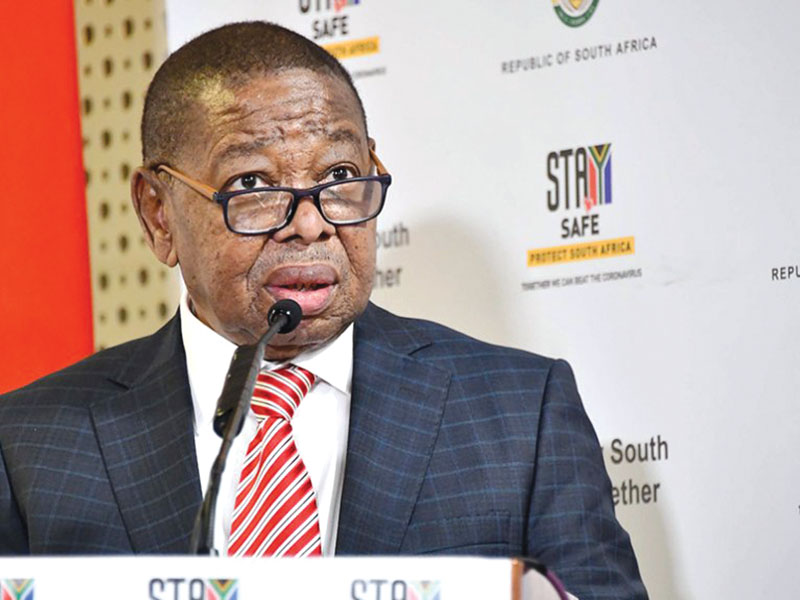South Africa: Shame & scandals

Blade Nzimande: kickbacks allegation
Ahead of the start of the academic year in February, South African higher education is mired in crisis, amid claims of corruption and questions over the ability of the country’s student funding scheme to manage payments. Higher education minister Blade Nzimande has been on the ropes for weeks following publication of allegations that together with NSFAS chair Ernest Khosa he took kickbacks from the National Student Financial Aid Scheme (NSFAS), a bursary for students from poor and working-class families.
The accusations are levelled by the Organisation Undoing Tax Abuse (OUTA), a civil society body, which shared as evidence what it says are voice recordings of Khosa and representatives of NSFAS service providers. The alleged payments reportedly include a donation of one million rand (Rs.44 lakh) to the South African Communist Party, which Nzimande chairs, from the husband of a company director. These allegations add to a sense of turmoil at the Department of Higher Education and Training (DHET), which oversees NSFAS and has lost a string of key senior staff members in recent months. Politicians, students and civil society groups have called for Nzimande to be sacked.
As the new academic year looms, meanwhile, NSFAS has missed a deadline that it set itself to pay outstanding allowances from last year to what it said was around 20,000 students. Only about 9,000 have been “successfully resolved” so far, according to the fund. It blames the continuing delays on universities failing to submit registrations on time, but the South African Union of Students (SAUS) laments what it says is NSFAS’ “regrettable and perpetual inability” to deliver on its mandate. SAUS says the 20,000 figure is probably a significant underestimate, because other students have been unable to get on to a new payment platform to receive their allowances.
NSFAS had already been rocked last October by allegations of “irregular conduct” by its then chief executive, Andile Nongogo, in relation to the appointment of service providers, which pay around 1.1 million students their 1,650 rand (Rs.7,255) monthly allowance directly, in contrast to previous arrangements when universities made the payments. Nongogo was dismissed and his appeal against his termination was dismissed by a labour court in January.
Nico Cloete, former director of the Centre for Higher Education Trust and coordinator of the Higher Education Research and Advocacy Network in Africa, questions the wisdom of the 1999 decision to take responsibility for making bursary payments away from universities. “The administration of giving the funds to students was taken away from universities because in that system, people at NSFAS and other national agencies could not steal the money. So this is a perfect storm of a lack of capacity combined with corruption,” he says.
Referring to the broader challenges facing the sector, Prof. Cloete adds: “This is of course the simple story of the new South Africa; a decrease in efficiency and an increase in corruption — a very sad (outcome) for higher education.”
(Excerpted and adapted from Times Higher Education and The Economist)
















Add comment